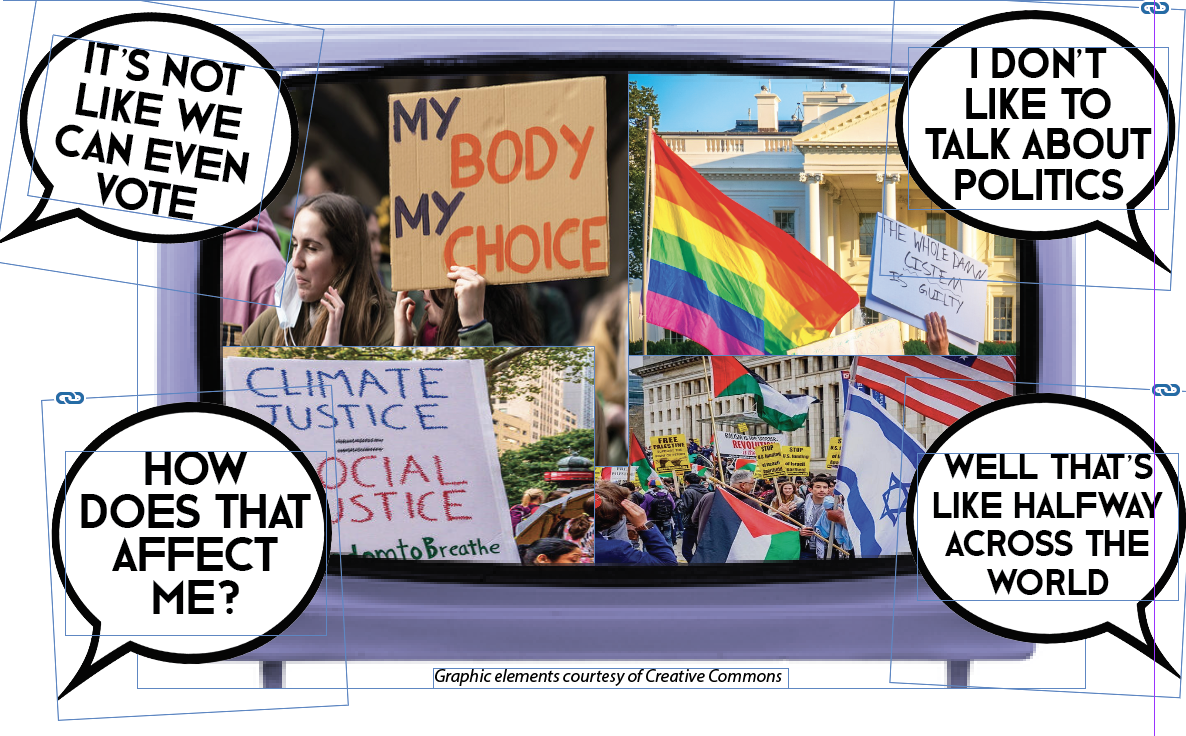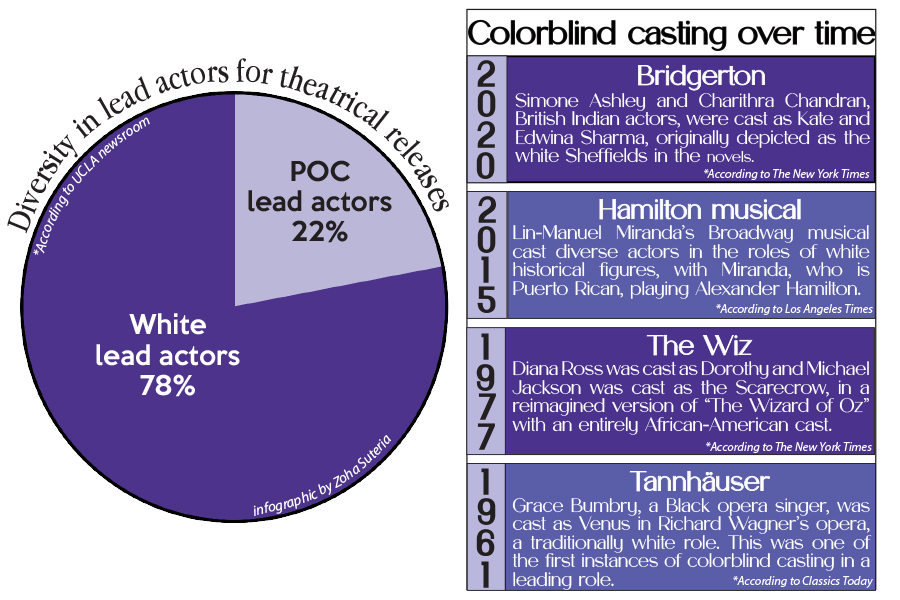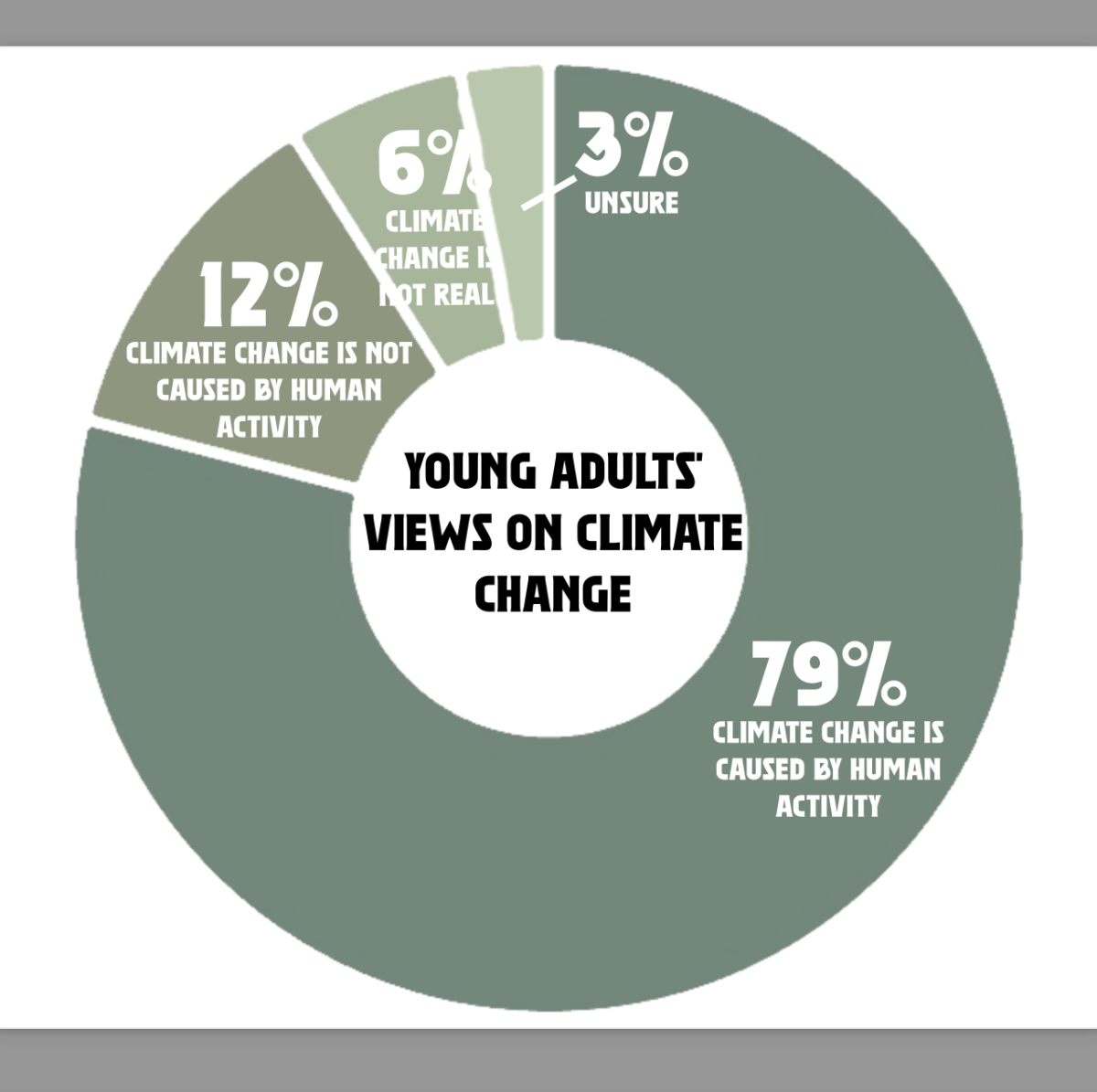“I don’t like to talk about politics.”
This sentence, although most often used to avoid conflict, is damaging our democracy.
There are myriad reasons why someone, especially someone our age, might not care about politics. The information overload and a lack of perceived relevance perpetuate avoidance. Plus, we can’t even vote.
The epidemic of political ignorance polluting young people has the potential to become one of the most dangerous trends expressed by today’s society.
One of the most important pillars of political apathy, and one of the most harmful, is pure ignorance, sophomore Liyana Bahiji said. As a sophomore, she can’t vote, but she still makes time to become well-versed on current events.
“Nothing will change for the better if everybody’s ignorant,” Bahiji said, “It’s better to have more people taking their time, looking, and seeing what’s happening.”
Doing simple research on topics you care about is the first step in the right direction, Bahiji said.
It doesn’t take a lot to become aware—at least vaguely—of the important global events going around you. We are constantly bombarded with information on social media, whether it’s tackling the climate change crisis, the current state of Ukraine, or who you should vote for in the next election.
Yet, this constant online stream is a contributor to why people, especially young people, tend to bow out when it comes to politics.
Nearly 57 percent of Americans say the current political climate is a significant source of stress, according to an American Psychological Association poll conducted in January of 2017.
This is no small feat. More than half of Americans feeling anxiety over politics, meaning almost certainly more than half of Americans are avoiding it at any cost.
This is not for lack of trying. I have seen plenty of people, especially my friends, try to get involved. But, countless half-finished articles and Instagram infographics later, they find themselves back to square one and even less motivated to try again.
I know how hard it can be to feel overwhelmed by politics, but that doesn’t mean it should be avoided in its entirety.
Starting with a small issue you care about, whether politically motivated or not, and even simply reading an article about it can be a big step in the right direction of eradicating this phenomenon. Standing up for what you believe in can even be cathartic.
“[Speaking out] feels good; I don’t care who’s hearing [my voice] as long as it’s being heard,” Bahjij said. “I want people who disagree with me to agree with me, [people] who don’t have an opinion to hear [mine].”
People like to think that politics doesn’t affect their day-to-day lives. There are a lot of people who care about national politics, but hardly bat an eye at the local level.
This can function as another, even more impactful, form of ignorance. Until people begin to pay more attention to local events, our everyday lives will not see the change we want them to.
“It’s more than just somebody who volunteers on a campaign or fundraises for somebody,” David Kane, Social Studies Teacher, said. “It [is] important [to think about] the state of Illinois or even local politics, because we focus so much on D.C., but our day-to-day life is going to be more impacted by things going on with Governor Pritzker or in Glenview or Cook County than they are in D.C.”
There are many kinds of apathy, and many reasons for it too.
Next time you turn on the radio and find yourself on NPR, take the time to tune in. You might find something to fight for.











